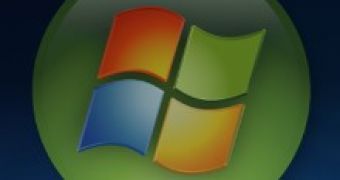Microsoft is pointing to Windows 7 as a panacea for scenarios in which end users go hunting for codecs on the Internet struggling with file formats that are not natively supported by the Windows operating system. The promise from the Redmond company is that, with the next iteration of the Windows client, the necessary decoders will already be in place and ready to handle the formats that users will throw at them, of course with some exceptions. MPEG-4, 3GPP/3GPP2, AAC, ASP in AVI, AVCHD, HDV are the generic names for the formats supported in Windows 7.
The video decoders associated with them are H.264, MPEG-4, ASP and SP. The specific file extensions that will not present a problem when it comes down to Windows 7 are .mp4 (A, V, A + V), .m4a (A), .mov, .3gp, .3g2 (A, V, A + V), .aac (A), .avi, (V, A + V), .m2t, .m2ts, .mts (A, V, A + V). Still, Microsoft indicated that Windows 7 would not be limited to playing back local files.
“In addition to supporting local playback of new formats, we can also ensure that the content will play on devices that may not support the codec, bit rate, container, or format of that content. We accomplish this by using the new transcoding support in Windows 7,” revealed Scott Manchester, Devices & Media program management.
Essentially, the software giant has built Windows 7 in order to be capable of reading the capabilities of the devices connected to it, including metrics such as codec, bit rate, and dynamically adapting content for the output device to play. “The general rule of thumb is: if Windows Media Player can play the content on the PC then the content will almost always play back on the network connected device,” Manchester added.
The successor of Windows Vista will tailor the format and bit rate in accordance with bandwidth estimations, for media streaming in the home and across the Internet. At the same time, Microsoft emphasized that Windows 7 transcoding, and implicitly aspects such as format and bit rate, were directly dependent of the CPU performance.
“We also created a flexible model for silicon partners to provide hardware accelerators that automatically work with media streaming and other Windows 7 features. This new acceleration model allows hardware developers to build media foundation proxies for media format encoders and decoders that are fully implemented in their hardware (perhaps in a GPU or additional hardware device). With hardware supported encoding and decoding, Windows 7 can offload the computationally demanding transcoding to dedicated hardware as a background task without affecting the CPU performance of the PC,” Manchester stated.
32-bit and 64-bit Windows 7 (Release Candidate) RC Build 7100.0.090421-1700 is available for download here.

 14 DAY TRIAL //
14 DAY TRIAL // 
